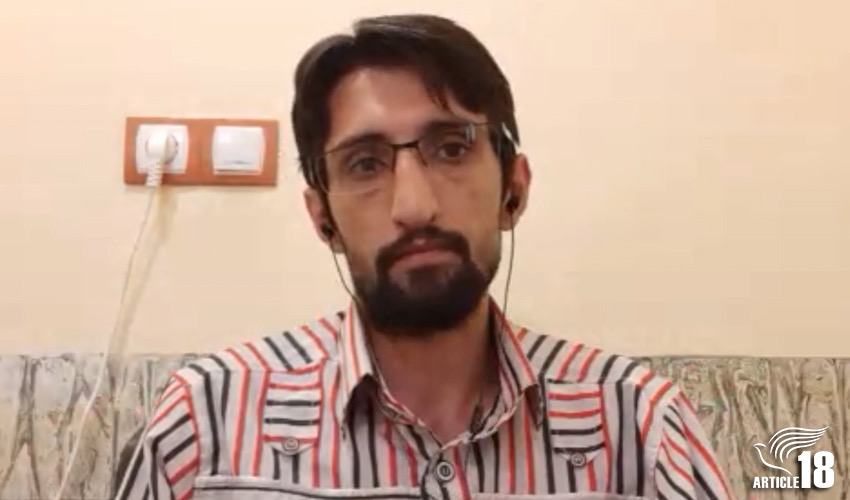
A Christian convert serving two years in internal exile in a remote southeastern Iranian city has had his exile extended for a further 11 months owing to an unauthorised leave of absence.
Ebrahim Firouzi, who is 34, began his exile on 12 November 2019, just two weeks after returning home from six years in prison because of his Christian evangelism.
He was sent to the remote city of Sarbaz, 1,000 miles from his home in Robat Karim, near Tehran, and told to travel there at his own expense and to remain there for two years, signing in every day to prove his presence.
However, shortly after arriving, Ebrahim requested a short furlough from the local authorities to travel to the city of Hamedan, west of Robat Karim, to sort out some family affairs that he hadn’t been able to attend to in the short time between his release from prison and journey into exile.
Ebrahim told Article18 the matter related to his mother, who died during Ebrahim’s time in prison and was denied permission to see him in her last days, despite an emotional plea for one last chance to see her son.
Ebrahim was told by the local authorities in Sarbaz that a short leave of absence shouldn’t be a problem, but that they needed to check with the authorities in Robat Karim.
He was told to wait for their response, but having not heard anything for several days, Ebrahim decided to proceed with his plans, and left Sarbaz on 13 December, returning six days later.
But on his return, Ebrahim was informed that his absence had been reported to the judicial authorities in Tehran and that he should have obtained permission from the court in Robat Karim, which sent him.
Hearing this, Ebrahim immediately took a flight to Robat Karim and was eventually able to obtain a signed letter by a judge authorising his absence.
With this in hand, he returned to Sarbaz on 27 December, two weeks to the day after he first left. But on his return, Ebrahim was told that it was in fact the prosecutor’s office in Tehran, not Robat Karim, from which he ought to have sought permission.
He was also advised not to sign in again until the matter was resolved, because, they said, he was likely to be summoned to Tehran, and if he were to go there, it would be seen as a second leave of absence, the punishment for which would be to serve the remainder of his sentence in prison.
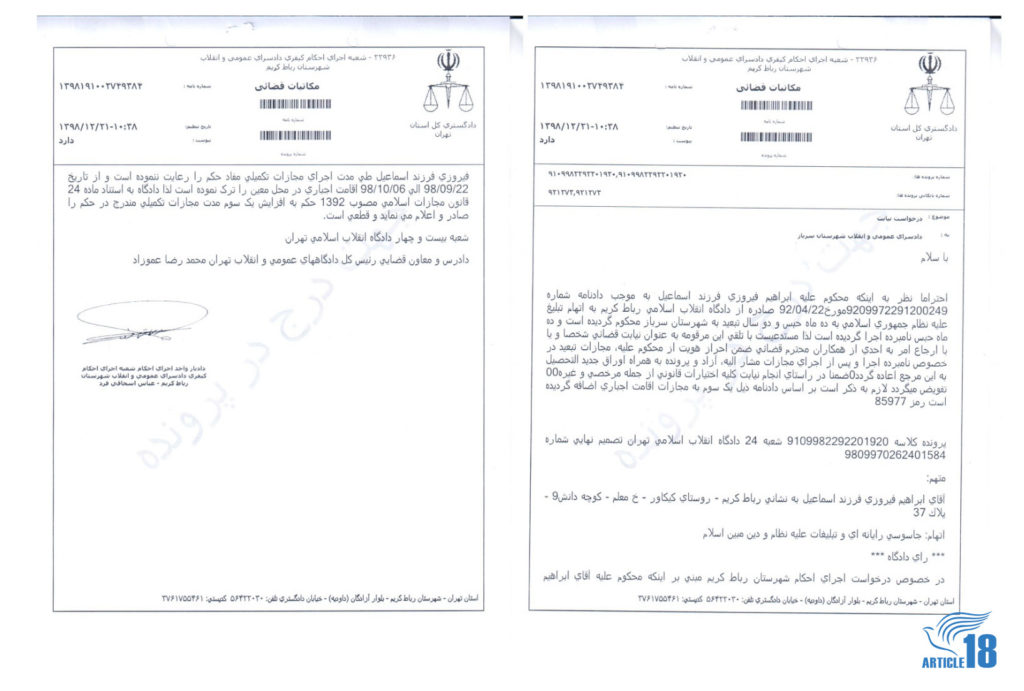
Hoping to hear from Tehran within a few weeks, Ebrahim heeded their advice, but in fact it wasn’t until yesterday, three months on from his leave of absence, that Ebrahim finally received a letter informing him that his sentence had been increased by eight months, plus an extra three months to cover the period of time in which he had failed to provide signatures to prove his presence in Sarbaz.
So there would be no court hearing, after all, and Ebrahim’s sentence was the maximum he could have faced – of one third of his sentence, plus the time he had spent “on leave”, albeit primarily still within Sarbaz.
In the ruling, which was declared final, with no option to appeal, the judge included some false information, citing one charge against Ebrahim that he had never faced – “cyber-spying” – and another – “propaganda against Islam” – that he had once faced but had been acquitted of.
Ebrahim gave this reaction to Article18: “The court has given a final verdict, without giving me an opportunity to explain or to defend myself, and uses charges against me which are either unrelated, or I’ve been acquitted of. Therefore I have decided to take this matter to the media, to demand an explanation, and make my voice heard, as this is an example of a miscarriage of justice by the Iranian judiciary.”
Ebrahim added that he believed the judge who had made the ruling must either have been unqualified – due to the substantial errors made in the text – or included the misleading information with a view to damaging his reputation with people in Sarbaz, who, Ebrahim said, “have accepted and respected me as a Christian”.
Article18’s Advocacy Director, Mansour Borji, commented: “One of the most-documented accusations against the Iranian authorities has been miscarriages of justice, vague and unfounded charges used indiscriminately against religious and political activists. Ebrahim, and the recent court ruling against him, is a living example of this.”
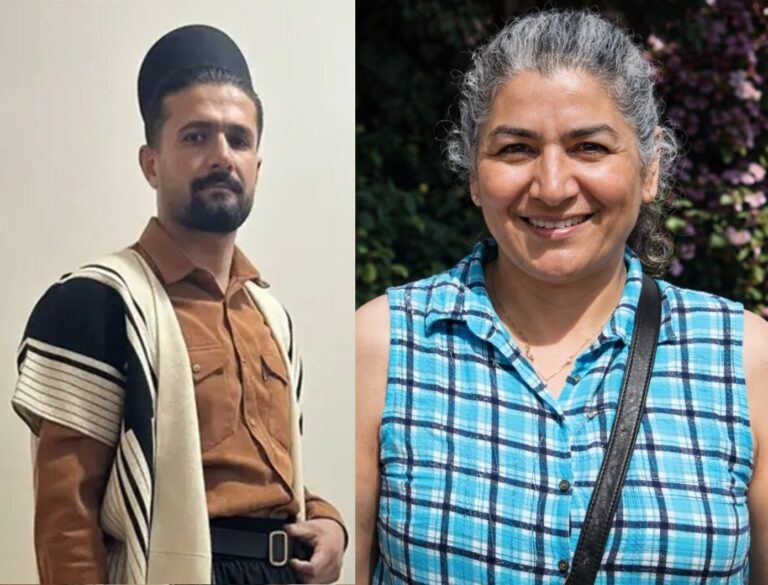
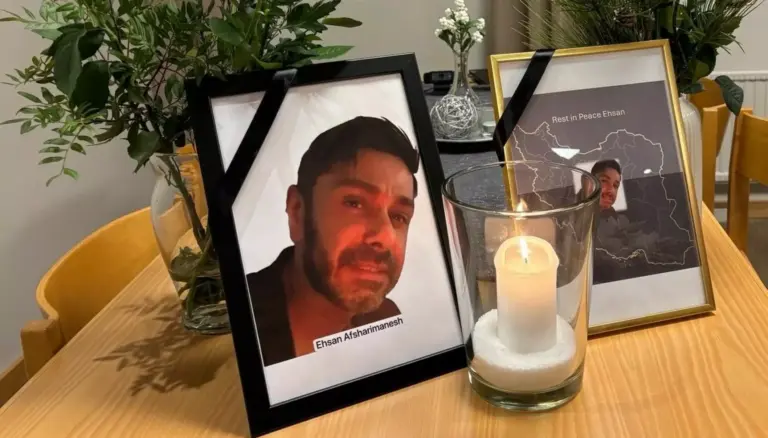
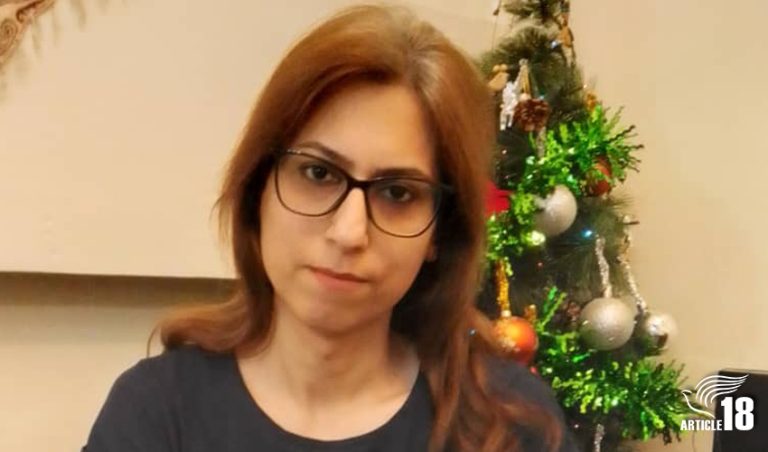
0 Comments
Trackbacks/Pingbacks